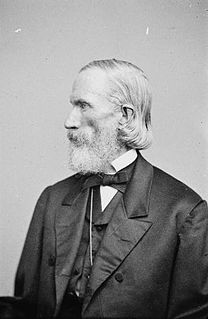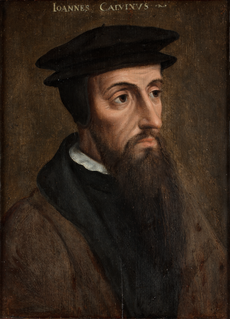Related Research Articles
Phrenology is a pseudoscience which involves the measurement of bumps on the skull to predict mental traits. It is based on the concept that the brain is the organ of the mind, and that certain brain areas have localized, specific functions or modules. Although both of those ideas have a basis in reality, phrenology generalized beyond empirical knowledge in a way that departed from science. The central phrenological notion that measuring the contour of the skull can predict personality traits is discredited by empirical research. Developed by German physician Franz Joseph Gall in 1796, the discipline was influential in the 19th century, especially from about 1810 until 1840. The principal British centre for phrenology was Edinburgh, where the Edinburgh Phrenological Society was established in 1820.
Rights are legal, social, or ethical principles of freedom or entitlement; that is, rights are the fundamental normative rules about what is allowed of people or owed to people according to some legal system, social convention, or ethical theory. Rights are of essential importance in such disciplines as law and ethics, especially theories of justice and deontology.

Apophatic theology, also known as negative theology, is a form of theological thinking and religious practice which attempts to approach God, the Divine, by negation, to speak only in terms of what may not be said about the perfect goodness that is God. It forms a pair together with cataphatic theology, which approaches God or the Divine by affirmations or positive statements about what God is.

Luck is the phenomenon and belief that defines the experience of notably positive, negative, or improbable events. The naturalistic interpretation is that positive and negative events may happen at any time, both due to random and non-random natural and artificial processes, and that even improbable events can happen by random chance. In this view, the epithet "lucky" or "unlucky" is a descriptive label that refers to an event's positivity, negativity, or improbability.

Abraham ibn Daud was a Spanish-Jewish astronomer, historian, and philosopher; born at Córdoba, Spain about 1110; died in Toledo, Spain, according to common report, a martyr about 1180. He is sometimes known by the abbreviation Rabad I or Ravad I. His mother belonged to a family famed for its learning. Some scholars believe he is the Arabic-into-Latin translator known as “Avendauth.”

Forgiveness, in a psychological sense, is the intentional and voluntary process by which one who may initially feel victimized, undergoes a change in feelings and attitude regarding a given offense, and overcomes negative emotions such as resentment and vengeance. Theorists differ, however, in the extent to which they believe forgiveness also implies replacing the negative emotions with positive attitudes. In certain legal contexts, forgiveness is a term for absolving or giving up all claims on account of debt, loan, obligation, or other claims.

Orson Squire Fowler was an American phrenologist, vegetarian and lecturer. He also popularized the octagon house in the middle of the nineteenth century.

Aseity is the property by which a being exists in and of itself, from itself, or exists as so-and-such of and from itself. The word is often used to refer to the Christian belief that God contains within himself the cause of himself, is the first cause, or rather is simply uncaused, though many Jewish and Muslim theologians have also believed God to be independent in this way. Notions of aseity as the highest principle go back at least to Plato and have been in wide circulation since Augustine, though the use of the word 'aseity' began only in the Middle Ages.
Antisexualism is opposition or hostility towards sexual behavior and sexuality.
An autoantibody is an antibody produced by the immune system that is directed against one or more of the individual's own proteins. Many autoimmune diseases are caused by such autoantibodies.
Maitrī means benevolence, loving-kindness, friendliness, amity, good will, and active interest in others. It is the first of the four sublime states (Brahmaviharas) and one of the ten pāramīs of the Theravāda school of Buddhism.
The Constitution of Man first published in 1828 is a work by George Combe, who is credited with popularizing the science of Phrenology. Combe argues that the human mind is best understood through Phrenology, and that the relative size of the various regions of the brain defined by Phrenology determines a person's behavior and potential interactions with the external world. In The Constitution of Man Combe uses Phrenology to create a practical science of morality, proposing that conforming to Natural Laws leads to happiness based on the Phrenological understanding of human nature. The book was an international bestseller, selling at least 100,000 copies in Britain alone and over 300,000 copies worldwide by 1855, largely due to the publication of the 'people's edition,' making it one of the best-sellers of the nineteenth century.
Benevolence or Benevolent may refer to:

The Edinburgh Phrenological Society was founded in 1820 by George Combe, an Edinburgh lawyer, with his physician brother Andrew Combe. The Edinburgh Society was the first and foremost phrenology grouping in Great Britain; more than forty phrenological societies followed in other parts of the British Isles. The Society's influence was greatest over its first two decades but declined in the 1840s; the final meeting was recorded in 1870.
Clonal deletion is the removal through apoptosis of B cells and T cells that have expressed receptors for self before developing into fully immunocompetent lymphocytes. This prevents recognition and destruction of self host cells, making it a type of negative selection or central tolerance. Central tolerance prevents B and T lymphocytes from reacting to self. Thus, clonal deletion can help protect individuals against autoimmunity. Clonal deletion is thought to be the most common type of negative selection. It is one method of immune tolerance.

New England theology designates a school of theology which grew up among the Congregationalists of New England, originating in the year 1732, when Jonathan Edwards began his constructive theological work, culminating a little before the American Civil War, declining afterwards, and rapidly disappearing after the year 1880.

The psychograph was a phrenology machine, invented and marketed by Henry C. Lavery in the early part of the 20th century.
According to Sarira Traya, the Doctrine of the Three bodies in Hinduism, the human being is composed of three shariras or "bodies" emanating from Brahman by avidya, "ignorance" or "nescience". They are often equated with the five koshas (sheaths), which cover the atman. The Three Bodies Doctrine is an essential doctrine in Indian philosophy and religion, especially Yoga, Advaita Vedanta, Tantra & Shaivism.
The Zoist: A Journal of Cerebral Physiology & Mesmerism, and Their Applications to Human Welfare, was a British journal, devoted to the promotion of the theories and practices of the pseudoscientific concepts of mesmerism and phrenology, and the enterprise of "connecting and harmonizing practical science with little understood laws governing the mental structure of man". The name derived from the Greek word Zoe (ζωή) meaning "life". The Zoist was published quarterly, without a break, for fifteen years: from March 1843 until January 1856.
In social psychology, shattered assumptions theory proposes that experiencing traumatic events can change how victims and survivors view themselves and the world. Specifically, the theory – developed by Ronnie Janoff-Bulman in 1992 – concerns the effect that negative events have on three inherent assumptions: overall benevolence of the world, meaningfulness of the world, and self worth. These fundamental beliefs are the bedrock of our conceptual system and are the assumptions we are least aware of and least likely to challenge. They constitute our "assumptive world," defined as "a strongly held set of assumptions about the world and the self which is confidently maintained and used as a means of recognizing, planning, and acting" by C. M. Parkes. According to Janoff-Bulman, traumatic life events shatter these core assumptions, and coping involves rebuilding a viable assumptive world.
References
- 1 2 Shermer, Michael (2002). The Skeptic Encyclopedia of Pseudoscience. Altadena, CA: ABC-CLIO. p. 170. ISBN 1576076539.
- ↑ Kozlowski, Bryan (2016-09-27). What the Dickens?!: Distinctly Dickensian Words and How to Use Them. Running Press. ISBN 9780762461127.
- ↑ Bernier, Celeste-Marie; Newman, Judie (2009). Public Art, Memorials and Atlantic Slavery. Oxon: Routledge. p. 41. ISBN 9780415483155.